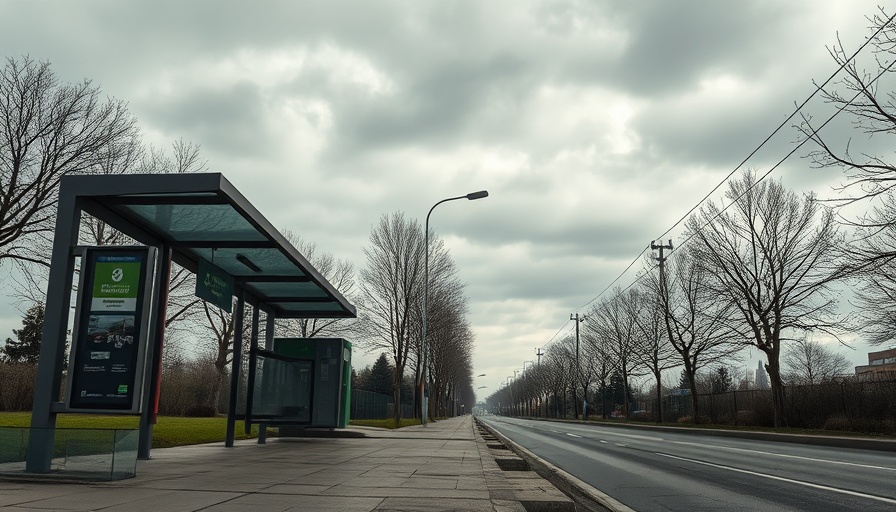
The Rising Bus Crisis in Dumfries and Galloway
In a world where urban transport is evolving rapidly, Dumfries and Galloway finds itself grappling with a significant bus crisis. The recent announcement by Stagecoach to withdraw entirely from commercial bus services in the region has ignited urgent discussions about sustainable transport solutions. The Labour Group on Dumfries and Galloway Council has taken a decisive stance, demanding immediate action to confront this worsening situation. Councillor Carolyne Wilson has been at the forefront of this initiative, emphasizing the dire implications for residents who rely on consistent transportation for employment, medical appointments, and social interactions.
Understanding the Impacts on Communities
The ramifications of the bus service withdrawal are profound, affecting every demographic. Elderly members of the community express worry about attendance at medical appointments, while younger residents fear social isolation and diminished job prospects. A particular concern arises for the 130 Stagecoach employees facing job loss, highlighting the intertwining issues of transport and local employment rates. The motion passed unanimously during the last council meeting underscores a collective acknowledgment of public transport's critical role in ensuring community health and vibrancy.
Addressing the Gaps in Public Transport
Despite plans initiated in 2021 for a council-run bus service, progress has lagged. The Labour motion calls for an urgent review of current transport provisions to identify service gaps and engage local communities in their transport solutions. This community-led approach reflects a growing trend in public transport governance, which emphasizes local engagement and control. Communities should have a say in how their transport services are run, rather than depending solely on private operators who may not prioritize public needs.
The Call for Public Ownership in Transport Services
As the council deliberates over the potential implementation of Transport (Scotland) Act 2019 powers to create publicly run bus services, it sparks a broader conversation about public ownership and accountability in essential services. The hesitance to rely solely on the private sector is becoming increasingly clear; as recent trends show a willingness among communities to advocate for public solutions that mitigate risks associated with corporate service withdrawals. Councillor Wilson’s insistence on taking control of transportation services resonates with a growing movement advocating for public access over profit.
The Role of Local Government in Shaping Future Transport
Public transport is not merely a service; it’s a lifeline that connects people to their livelihoods and community. As such, the Labour Group’s motion emphasizes a critical perspective: the need for governance structures capable of prioritizing public interests over corporate ones. Councillor Wilson articulated a vision where local governments act decisively, shaping policies that reflect community needs. This transition toward public ownership isn’t just about buses; it’s about creating a transportation system that serves the people rather than shareholders.
Next Steps and the Path Forward
The pathway toward resolving the current bus crisis in Dumfries and Galloway requires active participation from local authorities and community members alike. Council actions in the coming months will be critical in reshaping public transport and ensuring its viability. Listening to community concerns and taking bold actions such as seeking support from the Scottish Government for investment in rural transport could be key. Only by fostering public engagement and making informed decisions can the council hope to restore confidence in community transport.
Conclusion: Taking Action for the Future
The recent developments in Dumfries and Galloway illustrate a pressing need for innovative solutions in public transport. The Labour Group’s commitment to public ownership as a potential solution reflects a significant shift in public policy discussions. For communities to thrive, robust, dependable transport systems must evolve through proactive governance, public engagement, and the wisdom to learn from past mistakes. It's a call to action—one that demands community involvement and foresight into creating sustainable transport solutions that prioritize the needs of all demographics.
 Add Row
Add Row  Add
Add 





Write A Comment